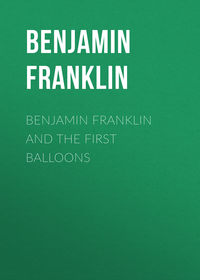![Memoirs of Benjamin Franklin; Written by Himself. [Vol. 2 of 2]](/covers_330/24858395.jpg) полная версия
полная версияMemoirs of Benjamin Franklin; Written by Himself. [Vol. 2 of 2]
That Englishmen of all ranks might be effectually intimidated from publishing their thoughts on any subject, except on the side of the court, his majesty's ministers caused an information, for several libels, to be exhibited in the Star Chamber against Messrs. Prynn, Burton, and Bastwick. They were each of them fined five thousand pounds, and adjudged to lose their ears on the pillory, to be branded on the cheeks with hot irons, and to suffer perpetual imprisonment! Thus these three gentlemen, each of worth and quality in their several professions, viz., divinity, law, and physic, were, for no other offence than writing on controverted points of church government, exposed on public scaffolds, and stigmatized and mutilated as common signal rogues or the most ordinary malefactors.
Such corporeal punishments, inflicted with all the circumstances of cruelty and infamy, bound down all other gentlemen under a servile fear of like treatment; so that, for several years, no one durst publicly speak or write in defence of the liberties of the people; which the king's ministers, his privy council, and his judges, had trampled under their feet. The spirit of the administration looked hideous and dreadful; the hate and resentment which the people conceived against it, for a long time lay smothered in their breasts, where those passions festered and grew venomous, and at last discharged themselves by an armed and vindictive hand.
King Charles II. aimed at the subversion of the government, but concealed his designs under a deep hypocrisy: a method which his predecessor, in the beginning of his reign, scorned to make use of. The father, who affected a high and rigid gravity, discountenanced all barefaced immorality. The son, of a gay, luxurious disposition, openly encouraged it: thus their inclinations being different, the restraint laid on some authors, and the encouragement given to others, were managed after a different manner.
In this reign a licenser was appointed for the stage and the press; no plays were encouraged but what had a tendency to debase the minds of the people. The original design of comedy was perverted; it appeared in all the shocking circumstances of immodest double entendre, obscure description, and lewd representation. Religion was sneered out of countenance, and public spirit ridiculed as an awkward oldfashioned virtue; the fine gentleman of the comedy, though embroidered over with wit, was a consummate debauchee; and a fine lady, though set off with a brilliant imagination, was an impudent coquette. Satire, which in the hands of Horace, Juvenal, and Boileau, was pointed with a generous resentment against vice, now became the declared foe of virtue and innocence. As the city of London, in all ages, as well as the time we are now speaking of, was remarkable for its opposition to arbitrary power, the poets levelled all their artillery against the metropolis, in order to bring the citizens into contempt: an alderman was never introduced on the theatre but under the complicated character of a sneaking, canting hypocrite, a miser, and a cuckold; while the court-wits, with impunity, libelled the most valuable part of the nation. Other writers, of a different stamp, with great learning and gravity, endeavoured to prove to the English people that slavery was jure divino.5 Thus the stage and the press, under the direction of a licenser, became battering engines against religion, virtue, and liberty. Those who had courage enough to write in their defence, were stigmatized as schismatics, and punished as disturbers of the government.
But when the embargo on wit was taken off, Sir Richard Steel and Mr. Addison soon rescued the stage from the load of impurity it laboured under with an inimitable address, they strongly recommended to our imitation the most amiable, rational manly characters; and this with so much success that I cannot suppose there is any reader to-day conversant in the writings of those gentlemen, that can taste with any tolerable relish the comedies of the once admired Shadwell. Vice was obliged to retire and give place to virtue: this will always be the consequence when truth has fair play: falsehood only dreads the attack, and cries out for auxiliaries: the truth never fears the encounter: she scorns the aid of the secular arm, and triumphs by her natural strength.
But, to resume the description of the reign of Charles II., the doctrine of servitude was chiefly managed by Sir Roger Lestrange. He had great advantages in the argument, being licenser for the press, and might have carried all before him without contradiction, if writings on the other side of the question had not been printed by stealth. The authors, whenever found, were prosecuted as seditious libellers; on all these occasions the king's counsel, particularly Sawyer and Finch, appeared most obsequious to accomplish the ends of the court.
During this blessed management, the king had entered into a secret league with France to render himself absolute and enslave his subjects. This fact was discovered to the world by Dr. Jonathan Swift, to whom Sir William Temple had intrusted the publication of his works.
Sidney, the sworn foe of tyranny, was a gentleman of noble family, of sublime understanding and exalted courage. The ministry were resolved to remove so great an obstacle out of the way of their designs. He was prosecuted for high treason. The overt act charged in the indictment was a libel found in his private study. Mr. Finch, the king's own solicitor-general, urged with great vehemence to this effect, "that the imagining the death of the king is treason, even while that imagination remains concealed in the mind, though the law cannot punish such secret treasonable thoughts till it arrives at the knowledge of them by some overt act. That the matter of the libel composed by Sidney was an imagining how to compass the death of King Charles II.; and the writing of it was an overt act of treason, for that to write was to act. (Scribere est agere.)" It seems that the king's counsel in this reign had not received the same directions as Queen Elizabeth had given hers; she told them they were to look upon themselves as not retained so much (pro domina regina, as pro domina veritate) for the power of the queen as for the power of truth.
Mr. Sidney made a strong and legal defence. He insisted that all the words in the book contained no more than general speculations on the principles of government, free for any man to write down; especially since the same are written in the parliament rolls and in the statute laws.
He argued on the injustice of applying by innuendoes, general assertions concerning principles of government, as overt acts to prove the writer was compassing the death of the king; for then no man could write of things done even by our ancestors, in defence of the constitution and freedom of England, without exposing himself to capital danger.
He denied that scribere est agere, but allowed that writing and publishing is to act (Scribere et publicare est agere), and therefore he urged that, as his book had never been published nor imparted to any person, it could not be an overt act, within the statutes of treasons, even admitting that it contained treasonable positions; that, on the contrary, it was a covert fact, locked up in his private study, as much concealed from the knowledge of any man as if it were locked up in the author's mind. This was the substance of Mr. Sidney's defence: but neither law, nor reason, nor eloquence, nor innocence ever availed where Jefferies sat as judge. Without troubling himself with any part of the defence, he declared in a rage, that Sidney's known principles were a sufficient proof of his intention to compass the death of the king.
A packed jury therefore found him guilty of high treason: great applications were made for his pardon. He was executed as a traitor.
This case is a pregnant instance of the danger that attends a law for punishing words, and of the little security the most valuable men have for their lives, in that society where a judge, by remote inferences and distant innuendoes, may construe the most innocent expressions into capital crimes. Sidney, the British Brutus, the warm, the steady friend of liberty; who, from an intrinsic love to mankind, left them that invaluable legacy, his immortal discourses on government, was for these very discourses murdered by the hands of lawless power. * * * *
Upon the whole, to suppress inquiries into the administration is good policy in an arbitrary government; but a free constitution and freedom of speech have such reciprocal dependance on each other, that they cannot subsist without consisting together.
The following extracts of a letter, signed Columella, and addressed to the editors of the British Repository for select Papers on Agriculture, Arts, and Manufactures (see vol. i.), will prepare those who read it for the following paper:
"Gentlemen, – There is now publishing in France a periodical work, called Ephemeridis du Citoyen,6 in which several points, interesting to those concerned in agriculture, are from time to time discussed by some able hands. In looking over one of the volumes of this work a few days ago, I found a little piece written by one of our countrymen, and which our vigilant neighbours had taken from the London Chronicle in 1766. The author is a gentleman well known to every man of letters in Europe, and perhaps there is none in this age to whom mankind in general are more indebted.
"That this piece may not be lost to our own country, I beg you will give it a place in your Repository: it was written in favour of the farmers, when they suffered so much abuse in our public papers, and were also plundered by the mob in many places."
ON THE PRICE OF CORN, AND THE MANAGEMENT OF THE POOR
To Messieurs the PublicI am one of that class of people that feeds you all, and at present abused by you all; in short, I am a farmer.
By your newspapers we are told that God had sent a very short harvest to some other countries of Europe. I thought this might be in favour of Old England, and that now we should get a good price for our grain, which would bring millions among us, and make us flow in money: that, to be sure, is scarce enough.
But the wisdom of government forbade the exportation.
Well, says I, then we must be content with the market price at home.
No, say my lords the mob, you sha'n't have that. Bring your corn to market if you dare; we'll sell it for you for less money, or take it for nothing.
Being thus attacked by both ends of the constitution, the head and tail of government, what am I to do?
Must I keep my corn in the barn, to feed and increase the breed of rats? Be it so; they cannot be less thankful than those I have been used to feed.
Are we farmers the only people to be grudged the profits of our honest labour? And why? One of the late scribblers against us gives a bill of fare of the provisions at my daughter's wedding, and proclaims to all the world that we had the insolence to eat beef and pudding! Has he not read the precept in the good book, thou shall not muzzle the mouth of the ox that treadeth out the corn; or does he think us less worthy of good living than our oxen?
Oh, but the manufacturers! the manufacturers! they are to be favoured, and they must have bread at a cheap rate!
Hark ye, Mr. Oaf: The farmers live splendidly, you say. And, pray, would you have them hoard the money they get? Their fine clothes and furniture, do they make themselves or for one another, and so keep the money among them? Or do they employ these your darling manufacturers, and so scatter it again all over the nation?
The wool would produce me a better price if it were suffered to go to foreign markets; but that, Messieurs the Public, your laws will not permit. It must be kept all at home, that our dear manufacturers may have it the cheaper. And then, having yourselves thus lessened our encouragement for raising sheep, you curse us for the scarcity of mutton!
I have heard my grandfather say, that the farmers submitted to the prohibition on the exportation of wool, being made to expect and believe that, when the manufacturer bought his wool cheaper, they should also have their cloth cheaper. But the deuse a bit. It has been growing dearer and dearer from that day to this. How so? Why, truly, the cloth is exported: and that keeps up the price.
Now if it be a good principle that the exportation of a commodity is to be restrained, that so our people at home may have it the cheaper, stick to that principle, and go thorough stitch with it. Prohibit the exportation of your cloth, your leather and shoes, your ironware, and your manufactures of all sorts, to make them all cheaper at home. And cheap enough they will be, I will warrant you, till people leave off making them.
Some folks seem to think they ought never to be easy till England becomes another Lubberland, where it is fancied the streets are paved with penny-rolls, the houses tiled with pancakes, and chickens, ready roasted, cry, Come eat me.
I say, when you are sure you have got a good principle, stick to it and carry it through. I hear it is said, that though it was necessary and right for the ministry to advise a prohibition of the exportation of corn, yet it was contrary to law; and also, that though it was contrary to law for the mob to obstruct wagons, yet it was necessary and right. Just the same thing to a tittle. Now they tell me an act of indemnity ought to pass in favour of the ministry, to secure them from the consequences of having acted illegally. If so, pass another in favour of the mob. Others say, some of the mob ought to be hanged, by way of example. If so – but to say no more than I have said before, when you are sure that you have a good principle, go through with it.
You say poor labourers cannot afford to buy bread at a high price, unless they had higher wages. Possibly. But how shall we farmers be able to afford our labourers higher wages, if you will not allow us to get, when we might have it, a higher price for our corn?
By all that I can learn, we should at least have had a guinea a quarter more if the exportation had been allowed. And this money England would have got from foreigners.
But, it seems, we farmers must take so much less that the poor may have it so much cheaper.
This operates, then, as a tax for the maintenance of the poor. A very good thing, you will say. But I ask, why a partial tax? why laid on us farmers only? If it be a good thing, pray, Messieurs the Public, take your share of it, by indemnifying us a little out of your public treasury. In doing a good thing there is both honour and pleasure; you are welcome to your share of both.
For my own part, I am not so well satisfied of the goodness of this thing. I am for doing good to the poor, but I differ in opinion about the means. I think the best way of doing good to the poor is not making them easy in poverty, but leading or driving them out of it. In my youth I travelled much, and I observed in different countries that the more public provisions were made for the poor, the less they provided for themselves, and, of course, became poorer. And, on the contrary, the less was done for them, the more they did for themselves, and became richer. There is no country in the world where so many provisions are established for them; so many hospitals to receive them when they are sick or lame, founded and maintained by voluntary charities; so many almshouses for the aged of both sexes, together with a solemn general law made by the rich to subject their estates to a heavy tax for the support of the poor. Under all these obligations, are our poor modest, humble, and thankful? And do they use their best endeavours to maintain themselves, and lighten our shoulders of this burden! On the contrary, I affirm that there is no country in the world in which the poor are more idle, dissolute, drunken, and insolent.7 The day you passed that act you took away from before their eyes the greatest of all inducements to industry, frugality, and sobriety, by giving them a dependance on somewhat else than a careful accumulation during youth and health, for support in age or sickness. In short, you offered a premium for the encouragement of idleness, and you should not now wonder that it has had its effect in the increase of poverty. Repeal this law, and you will soon see a change in their manners; Saint Monday and Saint Tuesday will soon cease to be holydays. Six days shalt thou labour, though one of the old commandments, long treated as out of date, will again be looked upon as a respectable precept; industry will increase, and with it plenty among the lower people; their circumstances will mend, and more will be done for their happiness by inuring them to provide for themselves, than could be done by dividing all your estates among them.
Excuse me, Messieurs the Public, if upon this interesting subject I put you to the trouble of reading a little of my nonsense; I am sure I have lately read a great deal of yours, and therefore, from you (at least from those of you who are writers) I deserve a little indulgence. I am yours, &c.
Arator.SINGULAR CUSTOM AMONG THE AMERICANS, ENTITLED WHITEWASHING
Dear Sir,
My wish is to give you some account of the people of these new states; but I am far from being qualified for the purpose, having as yet seen but little more than the cities of New-York and Philadelphia. I have discovered but few national singularities among them. Their customs and manners are nearly the same with those of England, which they have long been used to copy. For, previous to the revolution, the Americans were from their infancy taught to look up to the English as patterns of perfection in all things. I have observed, however, one custom, which, for aught I know, is peculiar to this country. An account of it will serve to fill up the remainder of this sheet, and may afford you some amusement.
When a young couple are about to enter into the matrimonial state, a never-failing article in the marriage treaty is, that the lady shall have and enjoy the free and unmolested exercise of the rights of whitewashing, with all its ceremonials, privileges, and appurtenances. A young woman would forego the most advantageous connexion, and even disappoint the warmest wish of her heart, rather than resign the invaluable right. You would wonder what this privilege of whitewashing is: I will endeavour to give you some idea of the ceremony, as I have seen it performed.
There is no season of the year in which the lady may not claim her privilege, if she pleases; but the latter end of May is most generally fixed upon for the purpose. The attentive husband may judge by certain prognostics when the storm is nigh at hand. When the lady is unusually fretful, finds fault with the servants, is discontented with the children, and complains much of the filthiness of everything about her, these are signs which ought not to be neglected; yet they are not decisive, as they sometimes come on and go off again without producing any farther effect. But if, when the husband rises in the morning, he should observe in the yard a wheelbarrow with a quantity of lime in it, or should see certain buckets with lime dissolved in water, there is then no time to be lost; he immediately locks up the apartment or closet where his papers or his private property is kept, and, putting the key in his pocket, betakes himself to flight, for a husband, however beloved, becomes a perfect nuisance during the season of female rage; his authority is superseded, his commission is suspended, and the very scullion who cleans the brasses in the kitchen becomes of more consideration and importance than him. He has nothing for it but to abdicate, and run from an evil which he can neither prevent nor mollify.
The husband gone, the ceremony begins. The walls are in a few minutes stripped of their furniture: paintings, prints, and looking-glasses lie in a huddled heap about the floors; the curtains are torn from the testers, the beds crammed into the windows; chairs and tables, bedsteads and cradles, crowd the yard; and the garden fence bends beneath the weight of carpets, blankets, cloth cloaks, old coats, and ragged breeches. Here may be seen the lumber of the kitchen, forming a dark and confused mass: for the foreground of the picture, grid irons and frying-pans, rusty shovels and broken tongs, spits and pots, joint-stools, and the fractured remains of rush-bottomed chairs. There a closet has disgorged its bowels, cracked tumblers, broken wineglasses, vials of forgotten physic, papers of unknown powders, seeds, and dried herbs, handfuls of old corks, tops of teapots, and stoppers of departed decanters; from the raghole in the garret to the rathole in the cellar, no place escapes unrummaged. It would seem as if the day of general doom was come, and the utensils of the house were dragged forth to judgment. In this tempest the words of Lear naturally present themselves, and might, with some alteration, be made strictly applicable:
"Let the great gods,That keep this dreadful pother o'er our heads,Find out their enemies now. Tremble, thou wretch,That hast within thee undivulged crimesUnwhipp'd of justice!"Close pent-up guilt,Raise your concealing continents, and askThese dreadful summoners grace!"This ceremony completed and the house thoroughly evacuated, the next operation is to smear the walls and ceilings of every room and closet with brushes dipped in a solution of lime, called white wash; to pour buckets of water over every floor, and scratch all the partitions and wainscots with rough brushes wet with soapsuds and dipped in stonecutter's sand. The windows by no means escape the general deluge. A servant scrambles out upon the penthouse, at the risk of her neck, and with a mug in her hand and a bucket within reach, she dashes away innumerable gallons of water against the glass panes, to the great annoyance of the passengers in the street.
I have been told that an action at law was once brought against one of these water nymphs, by a person who had a new suit of clothes spoiled by this operation; but, after long argument, it was determined by the whole court that the action would not lie, inasmuch as the defendant was in the exercise of a legal right, and not answerable for the consequences: and so the poor gentleman was doubly nonsuited, for he lost not only his suit of clothes, but his suit at law.
These smearings and scratchings, washings and dashings, being duly performed, the next ceremonial is to cleanse and replace the distracted furniture. You may have seen a house-raising or a ship-launch, when all the hands within reach are collected together: recollect, if you can, the hurry, bustle, confusion, and noise of such a scene, and you will have some idea of this cleaning match. The misfortune is, that the sole object is to make things clean; it matters not how many useful, ornamental, or valuable articles are mutilated or suffer death under the operation; a mahogany chair and carved frame undergo the same discipline; they are to be made clean at all events, but their preservation is not worthy of attention. For instance, a fine large engraving is laid flat on the floor, smaller prints are piled upon it, and the superincumbent weight cracks the glasses of the lower tier: but this is of no consequence. A valuable picture is placed leaning against the sharp corner of a table, others are made to lean against that, until the pressure of the whole forces the corner of the table through the canvass of the first. The frame and glass of a fine print are to be cleaned; the spirit and oil used on this occasion are suffered to leak through and spoil the engraving; no matter, if the glass is clean and the frame shine, it is sufficient; the rest is not worthy of consideration. An able arithmetician has made an accurate calculation, founded on long experience, and has discovered that the losses and destructions incident to two whitewashings are equal to one removal, and three removals equal to one fire.



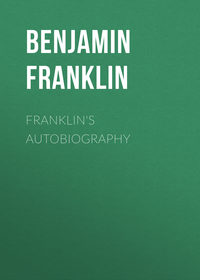
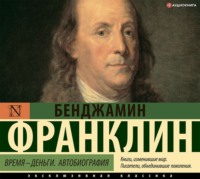

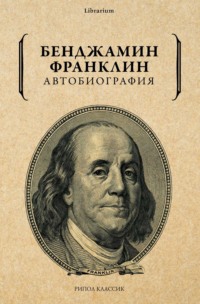
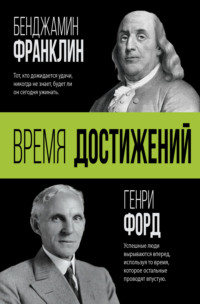
![Memoirs of Benjamin Franklin; Written by Himself. [Vol. 1 of 2]](/covers_200/24858139.jpg)
